Introduction to Choosing the Best Laptops for Web Development
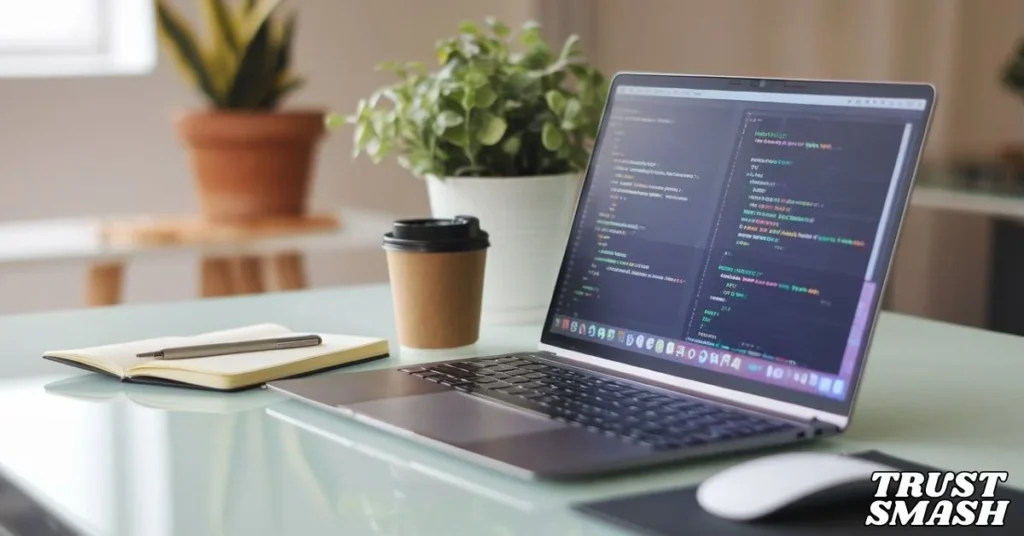
If you’re a web developer, your laptop is more than just a device — it’s your coding buddy, your design studio, and your testing lab, all in one. Pick the wrong one, and you might find yourself waiting forever for builds to load or struggling with poor battery life mid-project. But pick the right one, and your work feels smooth, fast, and… dare I say, enjoyable.
In 2025, The best Laptops for Web development there’s no shortage of options. The trick is knowing what matters most for your workflow and budget. Let’s break it down.
Key Features Every Web Developer Needs
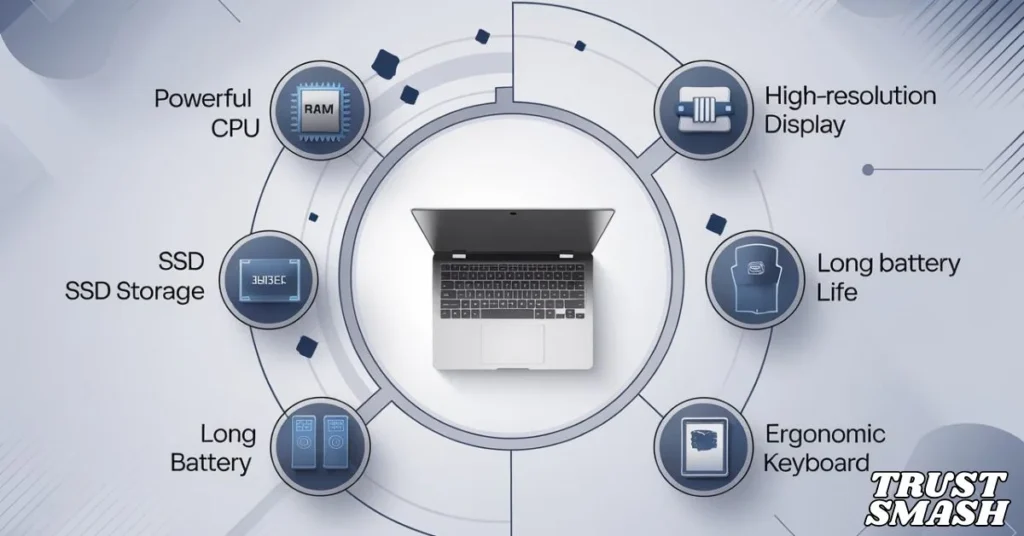
Processor Power and Speed
Think of the processor as your laptop’s brain. The smarter and faster it is, the better your laptop can juggle your tasks. For web development, an Intel i5 or AMD Ryzen 5 is a good starting point. If you can stretch your budget, an Intel i7 or Apple’s M3 chip will give you a lot more breathing room — perfect for running servers, compiling code, and testing in multiple browsers without the dreaded lag.
RAM Requirements for a Smooth Workflow
RAM is like your desk space. The more you have, the more tools and documents you can have open without feeling cramped. 16GB RAM hits the sweet spot for most devs, but if you’re dealing with heavy frameworks, virtual machines, or multiple apps at once, 32GB will make a noticeable difference.
Storage: SSD vs. HDD
If you’re still using a hard drive in 2025… you’re basically coding with a flip phone. SSDs are the standard now — they’re faster, quieter, and way more reliable. Go for at least 512GB if you want enough space for your projects, tools, and maybe a game or two for those “testing breaks.”
Screen Size and Resolution for Coding Comfort
Your eyes will thank you for a decent screen. A 14–16-inch display with at least Full HD resolution is ideal. If you’re into design work, consider 4K for sharper visuals — but be aware it can nibble at your battery life.
Battery Life for On-the-Go Developers
If you work from cafes, client offices, or love changing up your workspace, aim for 8–12 hours of battery life. Apple’s M3 MacBooks are absolute champs here — they can last through a full day of coding marathons.
Keyboard Quality and Ergonomics
You’ll be typing thousands of lines of code, so don’t underestimate the importance of a comfortable keyboard. Look for good key travel and a nice tactile feel — your fingers will thank you later.
Best Operating Systems for Web Development
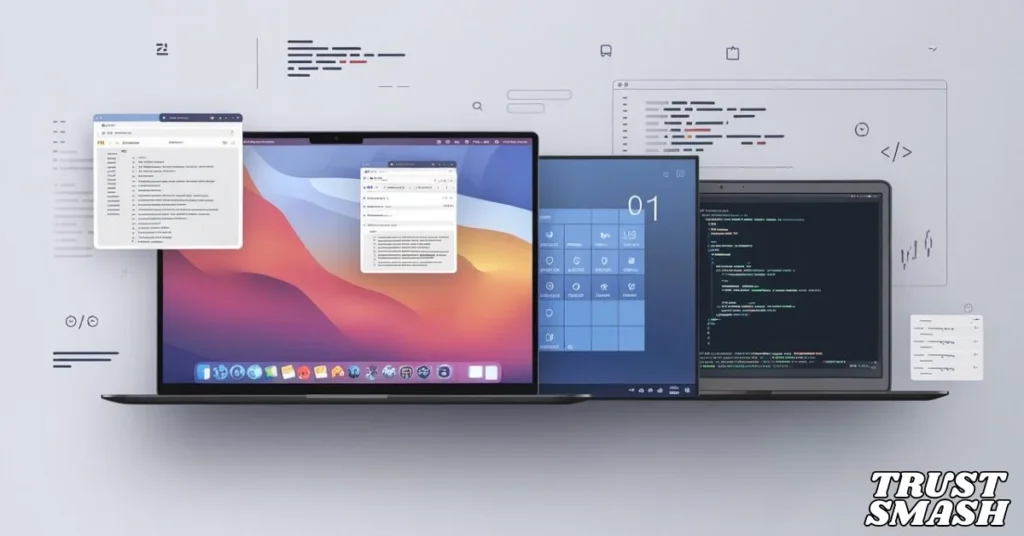
macOS for Developers
Developers love macOS for its stability, UNIX foundation, and sleek interface. If you work with iOS or prefer a clean, well-optimized environment, this is hard to beat.
Windows for Developers
Windows has made big strides for developers, especially with the Windows Subsystem for Linux (WSL). It’s versatile, supports a huge range of software, and gives you flexibility in hardware choices.
Linux for Developers
For devs who love full control, Linux is king. It’s lightweight, highly customizable, and fantastic for backend or server-focused work. Plus, it’s free — so you can put more budget into better hardware.
Top Picks for Best Laptops for Web Development in 2025
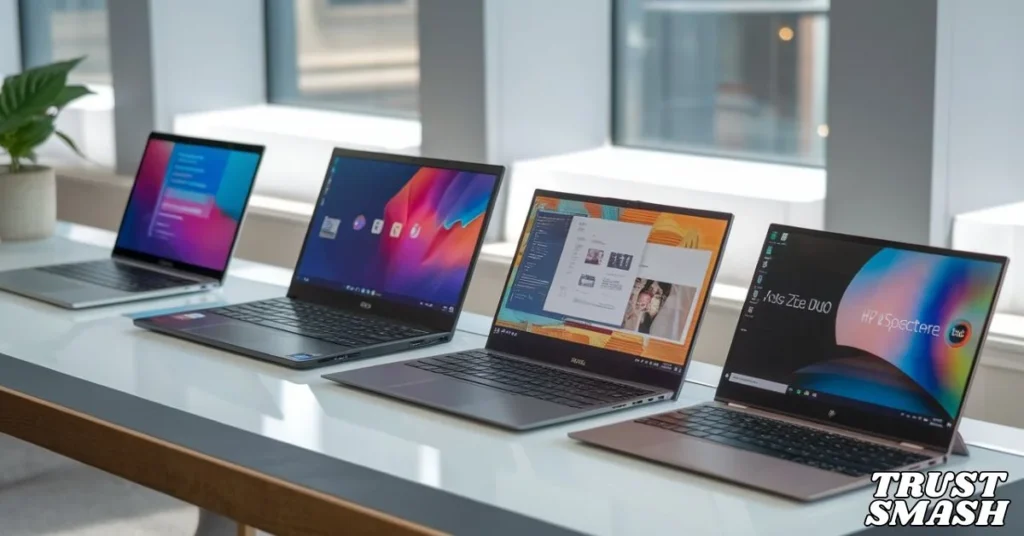
MacBook Pro 14-inch
- Why it’s great: Incredible performance, top-notch battery life, gorgeous Retina display.
- Downside: Your wallet might cry.
- Best for: Serious professionals who want the best balance of power and portability.
Dell XPS 15
- Why it’s great: Gorgeous display, strong performance, premium build.
- Downside: Pricey if you go for top specs.
- Best for: Full-stack devs and those who also do design-heavy work.
Lenovo ThinkPad X1 Carbon Gen 11
- Why it’s great: Lightweight, tough build, best keyboard in the game.
- Downside: Not the strongest graphics.
- Best for: Devs who type all day and value portability.
ASUS ZenBook Pro Duo
- Why it’s great: Dual screens for multitasking — perfect for keeping docs, code, and designs open at once.
- Downside: Battery life takes a hit.
- Best for: Designers, front-end devs, and multitasking fans.
HP Spectre x360 14
- Why it’s great: Flexible 2-in-1 design, solid battery life, premium feel.
- Downside: Slightly heavier than other ultrabooks.
- Best for: Devs who also need tablet mode for sketches or notes.
Budget-Friendly Options for Beginners
Acer Aspire 5
Solid build, enough power for beginner projects, and affordable.
ASUS VivoBook 15
Great value with enough speed to handle basic development tasks without slowing down.
Laptops for Full-Stack vs. Front-End Development
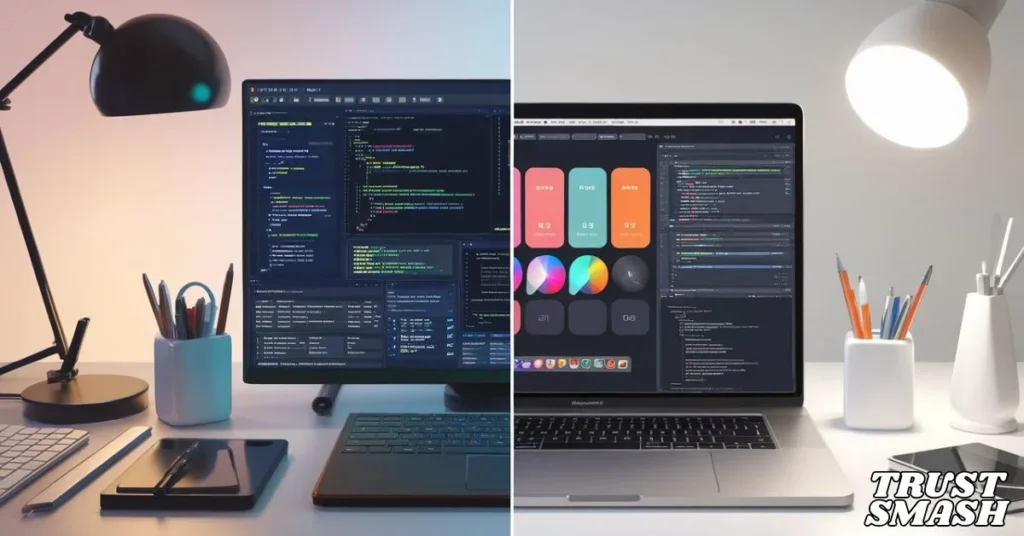
Best for Full-Stack Developers
You’ll want something with a beefier processor, more RAM, and plenty of storage — Dell XPS 15 or MacBook Pro are perfect fits.
Best for Front-End/UI Designers
Display quality and color accuracy matter more here — ASUS ZenBook Pro Duo or MacBook Pro will shine.
How Much Should You Spend on the Best Laptops for Web Development?
For beginners, $800–$1,200 will get you a solid laptop that can handle coding without frustration. For pros or those running heavier workloads, $1,800–$2,500+ is the range to look at for premium machines that will last years.
Tips to Extend the Life of Your Laptop for Development Work
- Keep your OS and software updated.
- Use a cooling pad if you run heavy processes often.
- Back up your work regularly.
- Avoid draining the battery to zero every time.
Conclusion
Choosing the best laptops for web development isn’t about buying the most expensive model — it’s about finding the one that matches your workflow and needs. Whether you go for the powerhouse MacBook Pro, the versatile Dell XPS, or a budget-friendly Acer, the key is comfort, speed, and reliability. Invest in the best laptops for web development for your work style, and it will support you through years of smooth, productive coding. And if you’re looking for something more powerful for 3D rendering or high-end game creation, check out our laptops for game development guide.
FAQS :
Q1: Is 8GB RAM enough for web development?
A: For light projects, sure. But if you want smooth multitasking, go for 16GB.
Q2: Which OS is best for web development?
A: All three — macOS, Windows, and Linux — have their strengths. Pick what fits your tools and style.
Q3: Do I need a dedicated graphics card for web development?
A: Only if you’re working with 3D, heavy design, or video editing.
Q4: Can Chromebooks be used for web development?
A: Only if you’re working with 3D, heavy design, or video editing.
Q5: What’s the average lifespan of a development laptop?
A: With care, 4–6 years is typical.